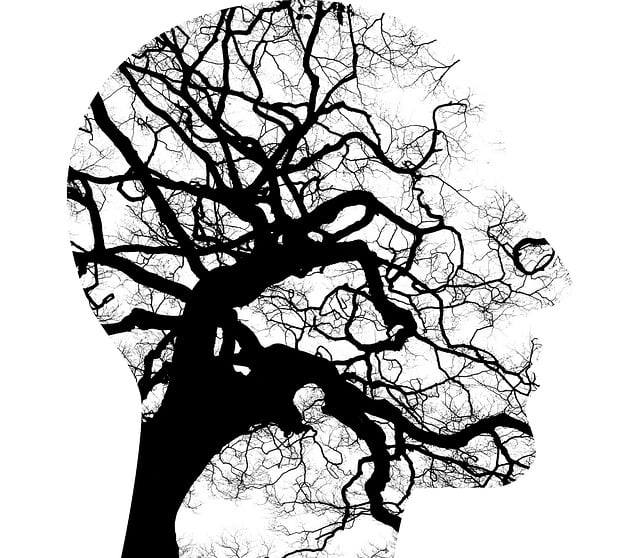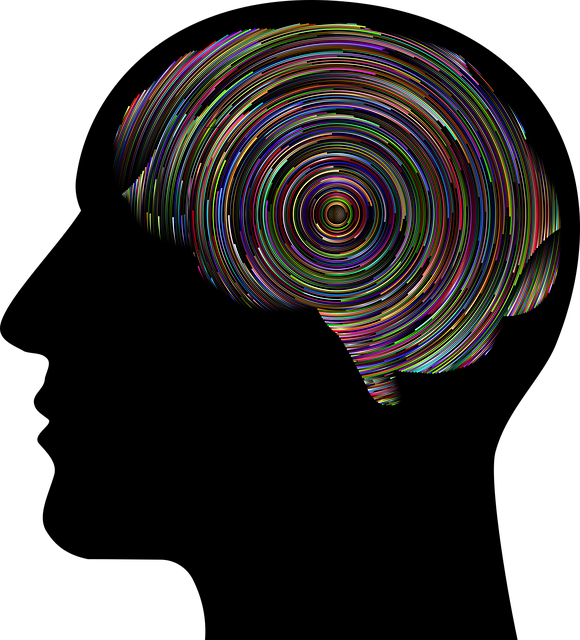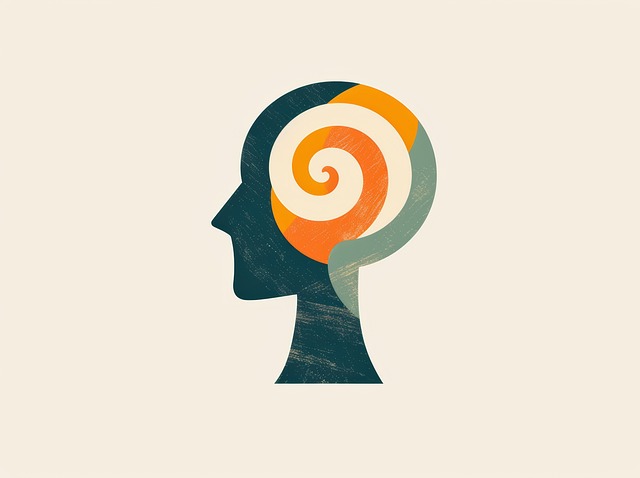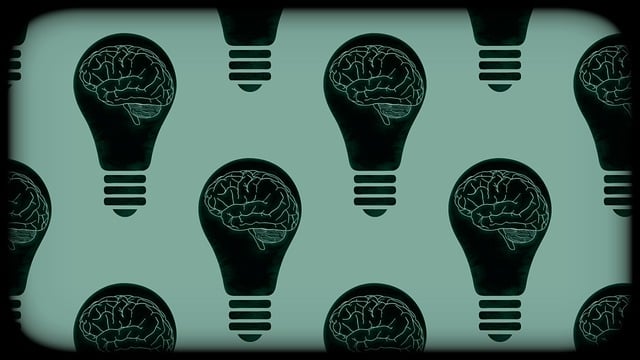Postpartum depression (PPD) affects around 1 in 7 new mothers, causing persistent sadness and anxiety that can escalate into suicidal thoughts if untreated. Early detection and specialized Golden Postpartum Depression Therapy combining social skills training, positive thinking, and compassionate cultivation helps mothers manage symptoms effectively. Mindfulness meditation, relaxation practices, and community support programs also play crucial roles in prevention and treatment. Building a supportive network through open conversations and active listening (the 'Golden rules') is vital for promoting mental wellness during this challenging period.
Stress management techniques are essential tools for new mothers navigating the complexities of postpartum life. This article delves into the profound impact of Golden Postpartum Depression (GPD), its symptoms, and the critical role therapy plays in effective treatment. We explore a range of stress management strategies, from integrating mindfulness and relaxation practices to building a robust support network. Understanding these techniques can empower new mothers to overcome GPD and foster a healthier, more balanced postpartum experience.
- Understanding Postpartum Depression: Symptoms and Impact
- The Role of Therapy in Golden Postpartum Depression Treatment
- Effective Stress Management Techniques for New Mothers
- Integrating Mindfulness and Relaxation Practices
- Building a Supportive Network: Beyond Therapy
Understanding Postpartum Depression: Symptoms and Impact

Postpartum Depression (PPD) is a common yet often misunderstood condition that can significantly impact new mothers’ lives. It’s crucial to recognize that PPD goes beyond the occasional ‘baby blues’ and is characterized by persistent feelings of sadness, anxiety, and exhaustion that can last for weeks or even months after childbirth. This mental health disorder affects approximately 1 in 7 new mothers, making it a pressing public health concern.
The symptoms of PPD vary from person to person but typically include extreme mood swings, difficulty sleeping or oversleeping, changes in appetite, feelings of guilt or shame, and a loss of interest in activities once enjoyed. Some mothers may also experience physical symptoms like fatigue, headaches, or chest pain. The impact of PPD can be severe, affecting not just the mother’s well-being but also her ability to care for her newborn. It can lead to social withdrawal, problems in relationships, and in extreme cases, even suicidal thoughts. Fortunately, with early recognition and appropriate Golden Postpartum Depression Therapy, including Social Skills Training and culturally sensitive mental healthcare practices that foster Positive Thinking, many mothers can successfully manage and overcome PPD.
The Role of Therapy in Golden Postpartum Depression Treatment

Postpartum depression (PPD) is a complex condition that requires specialized care, and therapy plays a golden role in its treatment. This mental health disorder often presents unique challenges due to the hormonal shifts and immense lifestyle changes new mothers experience. Therefore, evidence-based therapeutic approaches are essential for effective management. One such approach gaining recognition is tailored therapy for Golden Postpartum Depression (GPD), addressing the specific needs of this demographic.
Therapy offers a safe space for mothers to process their emotions, understand the root causes of their depression, and develop coping strategies. Techniques like compassion cultivation practices have proven beneficial in fostering self-kindness and reducing stress, which are crucial aspects of recovery. Moreover, healthcare provider cultural competency training ensures that professionals can offer sensitive support, respecting diverse cultural backgrounds and beliefs. By combining these therapeutic methods, a comprehensive framework for managing GPD is established, providing much-needed relief to new mothers.
Effective Stress Management Techniques for New Mothers

New motherhood is a transformative journey, filled with joy but also immense pressure. Effective stress management techniques are crucial for new mothers to navigate this period and prevent conditions like postpartum depression. One of the golden therapies gaining traction in mental health policy analysis and advocacy is mindfulness meditation. This practice encourages focusing on the present moment, cultivating awareness, and accepting thoughts and feelings without judgment. Regular mindfulness meditation has been shown to reduce stress, anxiety, and symptoms of depression, promoting overall well-being for new mothers.
Community outreach program implementation can also play a vital role in supporting at-risk individuals. By integrating programs that emphasize mental health awareness, education, and accessible resources, communities can foster an environment conducive to new mothers’ resilience. These initiatives might include support groups, workshops on stress management techniques, and counseling services tailored to address the unique challenges of postpartum periods. Prioritizing mental health through such interventions can help prevent and manage conditions like Golden Postpartum Depression Therapy, ensuring a healthier and happier transition into motherhood.
Integrating Mindfulness and Relaxation Practices

Integrating mindfulness and relaxation practices can be a powerful tool for managing stress, especially for new mothers who may be prone to postpartum depression. These techniques offer a holistic approach to mental well-being by encouraging present-moment awareness and cultivating a sense of calm. Mindfulness meditation, for instance, involves focusing on the breath and observing thoughts without judgment, helping individuals detach from stressful situations and gain perspective.
By incorporating daily practices such as deep breathing exercises, progressive muscle relaxation, or yoga, new mothers can develop self-care routines that support their mental health. These techniques not only reduce stress but also enhance overall resilience, fostering a sense of control over one’s emotional well-being. Moreover, mindfulness and relaxation can be combined with empathy-building strategies and conflict resolution techniques to create supportive environments, improving relationships and promoting positive mental health outcomes, especially when navigating challenging postpartum periods.
Building a Supportive Network: Beyond Therapy

Building a Supportive Network goes beyond the confines of therapy sessions. It’s about weaving a web of support that encompasses family, friends, and even online communities. For those dealing with Postpartum Depression, this network can be instrumental in their recovery journey. Encouraging open conversations about mental health fosters an environment where individuals feel understood and less isolated.
Effective Communication Strategies play a pivotal role here. Sharing feelings honestly yet respectfully with loved ones empowers everyone involved. This support system not only provides emotional healing processes but also practical assistance, helping to navigate daily challenges. Remember, Golden rules of support include active listening, empathy, and non-judgmental attitudes—essential elements for nurturing mental wellness in new mothers and those recovering from postpartum difficulties.
Stress management techniques play a pivotal role in mitigating Golden Postpartum Depression (PPD). By combining therapy, mindfulness practices, and building supportive networks, new mothers can navigate the challenges of PPD more effectively. Integrating these strategies not only enhances mental well-being but also fosters resilience, enabling women to enjoy this transformative period in their lives. For those struggling with PPD, seeking professional help and adopting healthy coping mechanisms are essential steps towards recovery and a brighter future.














